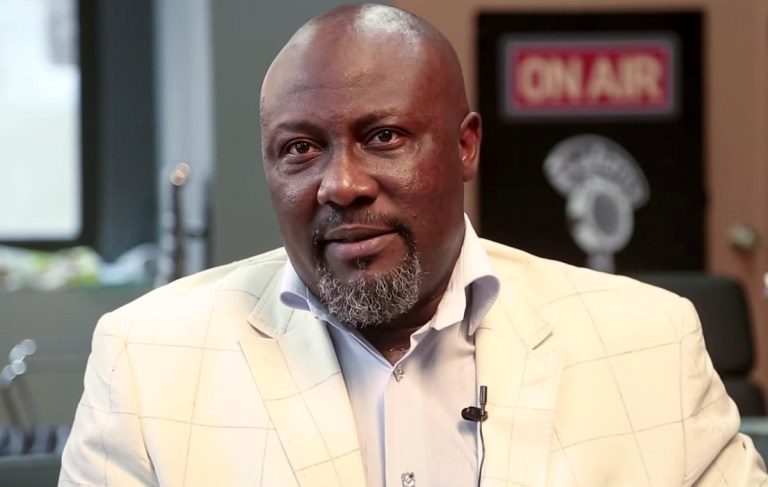Michael Olugbode in Abuja
The National Council on Climate Change (NCCC) has called on global partners, particularly developed countries to honour their commitments under the UN Framework Convention on Climate Change (UNFCCC) and the Paris Agreement, particularly in the areas of technology transfer and support for innovation in developing countries.
Director-General of the NCCC, Barr. Teni Majekodunmi, made the appeal on Wednesday at the Validation Workshop of Nigeria’s Nationally Determined Contribution (NDC) 3.0 in Abuja.
With the theme: Driving Ambition, Strengthening Action, and Aligning with the Paris agreement and Global Stocktake, Majekodunmi stressed the importance of localizing innovation by building the capacity of Nigerian entrepreneurs, researchers, and start-ups to develop technologies suited to the nation’s climate realities.
Nigeria’s NDC 3.0 is the country’s forthcoming climate action plan under the Paris Agreement, aimed at reducing greenhouse gas emissions and enhancing resilience to climate change.
According to Majekodunmi, the new plan builds on previous commitments while aligning with the Long-Term Low Emission Development Strategy (LT-LEDS) and the Nigeria Energy Transition Plan (ETP).
She said: “This validation workshop is the culmination of months of rigorous technical work, stakeholder consultations, sectoral analyses, and inter-agency collaboration.
“It reflects our inclusive approach, ensuring that every voice is heard and that our national targets are ambitious, realistic, science-based, and people-centred.”
Highlighting the huge financial requirements, the DG noted that implementing Nigeria’s mitigation and adaptation measures would cost tens of billions of dollars over the next decade.
Majekodunmi urged increased domestic financing alongside international support through the Green Climate Fund, the Adaptation Fund, bilateral and multilateral facilities, public-private partnerships, green bonds, and blended finance mechanisms.
Majekodunmi further emphasized the need for significant investment in human capital, institutional capacity, and climate technologies.
She listed clean energy systems, modernized agriculture, improved early warning systems, low-carbon transport, and stronger digital infrastructure as key areas requiring urgent support.
She urged participants at the workshop to ensure that the NDC 3.0 document reflects Nigeria’s aspirations, capabilities, and leadership both in Africa and on the global stage.
In her address, UNDP Nigeria Resident Representative, Mrs. Varsha Redkar-Palepu, described Nigeria’s updated climate action plan, the Nationally Determined Contribution (NDC) 3.0, as a bold step towards inclusive, resilient, and low-carbon development.
She said the country’s earlier NDCs laid a strong foundation, while the new version reflects “enhanced ambition, sharper emission reduction targets, robust adaptation strategies, and deeper integration of gender, youth, and sub-national voices.”
She commended the leadership of President Bola Ahmed Tinubu and the coordination role of the National Council on Climate Change (NCCC), noting that the updated plan comes at a decisive moment for global climate action.
“This year, and the years ahead, are critical. The world is at a tipping point. The decisions we make now will shape the climate trajectory for generations. Nigeria’s NDC 3.0 arrives at a time when global trust in multilateral processes is wavering yet the urgency of climate action demands unity, not division,” she said.
Redkar-Palepu stressed that the Paris Agreement and the NDC framework remain the best hope for coordinated action, adding that Nigeria’s leadership sends “a powerful signal that the Global South is not waiting, it is leading.”
She further reiterated UNDP’s commitment to supporting Nigeria in mobilizing climate finance, strengthening institutional capacity, and delivering results aligned with the Sustainable Development Goals, while also promoting gender equality and inclusive growth.
The Special Adviser to the President on Climate Finance and Stakeholder Engagement, Mr. Shelleng Ibrahim, noted that Nigeria’s updated Nationally Determined Contribution (NDC 3.0) under President Bola Ahmed Tinubu’s Renewed Hope Agenda, the country is committed to inclusive growth, economic transformation, and social development objectives that align with Nigeria’s climate goals.
He described the NDC 3.0 as not only a climate commitment but also a “developmental blueprint” that reflects national priorities in energy transition, agriculture, waste management, and resilient infrastructure key pillars of the Tinubu administration’s policy direction.
“As Senior Special Assistant to the President on Climate Finance and Stakeholder Engagement, aligning the NDC 3.0 with the president’s agenda ensures that climate action translates into job creation, poverty reduction, improved public health, and sustainable economic development,” he said.
According to him, the unveiling of the NDC 3.0 marks a step forward in harmonizing Nigeria’s environmental commitments with its national vision, with the goal of building a greener, stronger, and more prosperous country for future generations.
The Cluster Coordinator of GIZ, Duke Benjamin, added that Nigeria’s updated Nationally Determined Contribution (NDC 3.0) will play a key role in shaping future discussions between the governments of Germany and Nigeria.
The post NCCC Urges Developed Countries, Partners to Honour Commitment on Climate Change appeared first on THISDAYLIVE.

